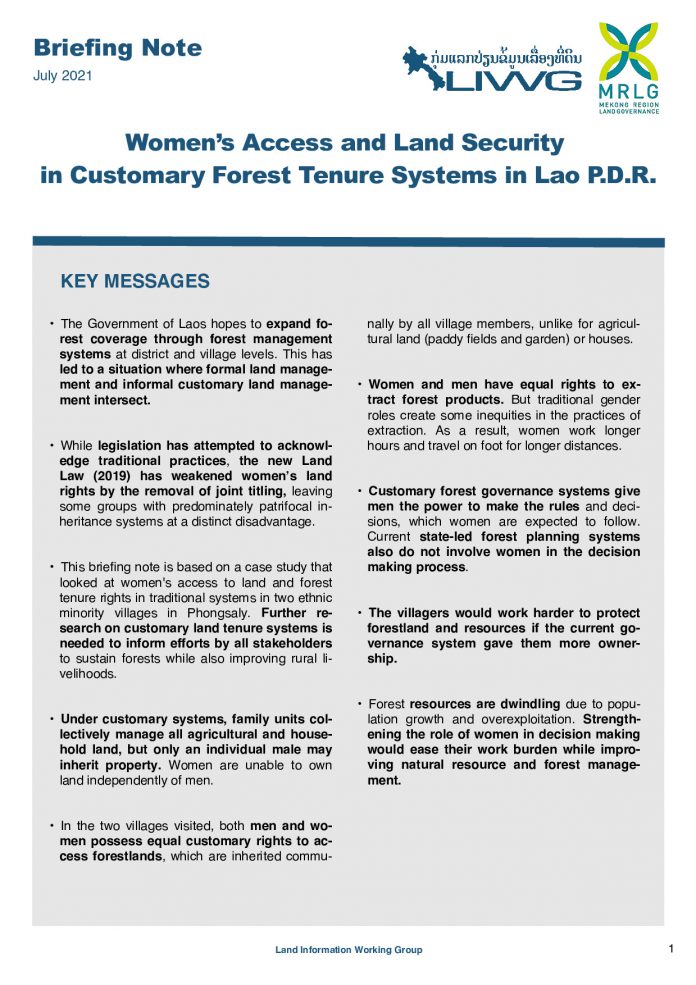
By LIWG
Land, forests, and water are the most valuable assets for ethnic groups that live in the forested mountain areas of Lao P.D.R. Sustaining and ensuring continued access to these resources is central to their livelihoods and food security. For generations, men and women’s access to these resources have been regulated by village level customary systems.
The Government of Lao P.D.R. had hoped to reach 70 percent forest coverage nationwide by 2020. The latest estimate of current forest cover is approximately 60 percent. The key to sustaining forests is understanding local values and beliefs, and how they relate to management of land, forests and water. The same will also help development projects improve community well-being through women’s land rights, gender equality, and positive change.
There has been little research on the customary rights of women in relation to forest land and resources. This briefing note is based on a case study (Figure 1) that looked at women’s access to land and forest tenure rights in traditional systems in Khmou Ou and White Tai villages of Mai district in Phongsaly province.
The contents include:
- Women and land legislation
- Customary land rights
- Rights of forest access
- Rights to extraction and benefits to communities
- Women’s role in customary forest governance
- Women’s involvement in formal forest governance
- Recommendations


